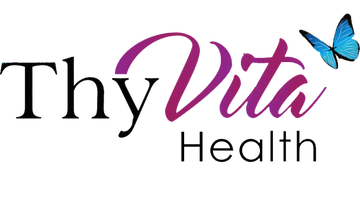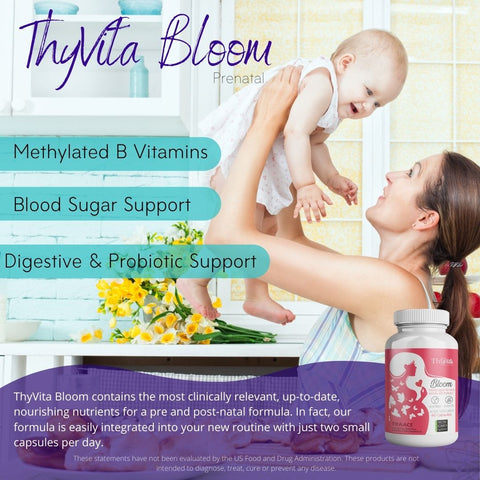Is Pregnancy Possible after Thyroidectomy?
Your thyroid is a little, butterfly shaped organ at the base of your neck, it controls most of the systems in your body, like your digestive and reproductive systems, it can affect your mood, mimic depression and it can even affect a women’s menstrual cycle. When it goes out of whack, you’ll know it because you start to feel differently, tired, fatigued, you might even have excessive hair shedding or find it difficult to get pregnant. But what if your thyroid disease is so severe your Doctor recommends your thyroid be removed? Is Pregnancy possible after thyroidectomy?
After thyroidectomy conception may come with some unique challenges. Let me share more about the challenges and special considerations that come with pregnancy after thyroidectomy, as well as some suggestions for getting support if you’re trying to conceive or you have gone through a miscarriage.
Infertility After Thyroidectomy
While it’s definitely possible to get pregnant after thyroidectomy, some people, both women and men, can deal with infertility. Infertility is especially a problem if you’re dealing with hypothyroidism post-surgery. Not only can hypothyroidism result in infertility problems, but it can also result in decreased sexual desire, which also becomes a problem for couples who want to conceive.
In patients who have struggled with thyroid disorders, one uncommon condition that may cause infertility is primary ovary failure, which occurs when your ovaries are attacked by proteins and white blood cells. This results in the ovaries decreasing in size, premature menopause, failure to ovulate, and infertility. If you’re dealing with hypothyroidism post-surgery, it can also affect your menstrual periods. Hypothyroidism can cause your periods to stop, and when you do have one, it's often extremely heavy with severe cramping. When your menstrual cycle is affected, it can make it more difficult to get pregnant.
Undergoing radioactive iodine therapy (RAI) can also cause fertility problems. In men, large doses of RAI can lower sperm count, and in rare cases, may cause infertility. It can also negatively affect a woman’s ovaries, resulting in irregular periods for as long as a year after treatment. Some doctors recommend that you wait for six months to a year after treatment before becoming pregnant if you’ve undergone RAI.
Building a Solid Foundation for Pregnancy
In addition to this, exercise along with eating the right foods and getting proper nutrition can lay the solid foundation needed for a healthy pregnancy. Avoiding fast foods, processed foods and sticking with healthy, nutritious and organic (if you can), along with good, low fat and lean proteins. Make sure you talk with your talk doctor about a proper multi-vitamin like ThyVita women’s Ultra or ThyVita Vitality, and if you’re not sure what to eat, seek the advice of the a licensed nutritionist.
The Importance of TSH Monitoring Before and During Pregnancy
Once you become pregnant, it’s very important to see your doctor right away. TSH monitoring is important when you’re trying to get pregnant, but it becomes even more critical after you become pregnant. Early monitoring is important because you need to maintain healthy TSH levels while you are pregnant. Within the first 10 weeks of pregnancy, thyroid hormone levels can be very unstable, and there’s a good chance that you’ll need to have your thyroxine dose increased, particularly in those first 10-12 weeks of pregnancy. Some studies have linked elevated TSH levels with an increased risk of miscarriage.
Thyroxine Treatment During Pregnancy
As previously noted, keeping your TSH level stable is essential when you’re pregnant, and it’s even more crucial during the first trimester. After your thyroidectomy, you’ll already be on thyroxine and you may be wondering if thyroxine is safe for your baby if you do get pregnant. Doctors have found no contra-indication to taking this medication throughout your pregnancy, and not taking thyroxine would increase your risk of miscarriage and other health problems. You can rest assured that thyroxine will not negatively affect your baby.
Actually, those thyroxine doses are crucial to your baby’s health. At about 12 weeks, a baby’s thyroid becomes functional and thyroid hormones are essential for healthy brain development in your baby. The thyroid hormones provided by your body during the first trimester are very important. In fact, during a normal pregnancy, the thyroid actually doubles in size to keep up with producing enough thyroid hormones for both you and your baby. For this reason, your thyroxine doses will probably need to be increased while pregnant to ensure that you and your baby maintain healthy TSH levels, and it's crucial to be monitored closely by an endocrinologist/gynecologist specialist.
Breastfeeding After Thyroidectomy
While breastfeeding is a very personal decision that is different for every mother, if you do decide to breastfeed after a thyroidectomy, there are some important things to keep in mind. First, radioactive isotopes are secreted in your milk, so you shouldn’t have any isotope scans or tests while you are breastfeeding. If you’re having radiation therapy in high doses, talk to your doctor, but in most cases, you should avoid breastfeeding to avoid radioactive isotopes passing into your breastmilk and on to your baby.
It is safe to breastfeed while you are taking thyroxine. It is secreted in your milk. However, if you are taking a dosage that’s in a safe range, doctors feel that it’s safe to breastfeed while you’re taking this medication.
Finding Support
In the event you are unable to conceive or maintain a pregnancy finding the right support can help. Infertility and miscarriage are both very difficult to deal with for anyone, and these difficulties come with additional challenges when you’ve already gone through all the changes that come after having a thyroidectomy. Although traditionally the struggles of infertility and the tragedy of miscarriage have been private, finding support from other people who have gone through similar things can help.
Start by reaching out to the people around you who love you. Ask friends and family members for support, comfort, and understanding. Another option is to seek counseling for you and your partner so you don’t face this on your own.
Support groups can also provide a safe place where you can talk to and get support from other people who may be facing similar difficulties. My support group, Life After Thyroidectomy, provides a place where you can say as much or as little as you want. You can ask questions, connect with other people going through similar struggles, and feel some comfort knowing that you’re not alone. Sometimes just knowing that other people are there to support you can give you the boost you need.
The most important thing to remember is to reach out for help if you need it and when you do become pregnant ThyVita Bloom Prenatal has everything you and your growing baby need for supportive nutrition. And remember, your story isn’t over.


